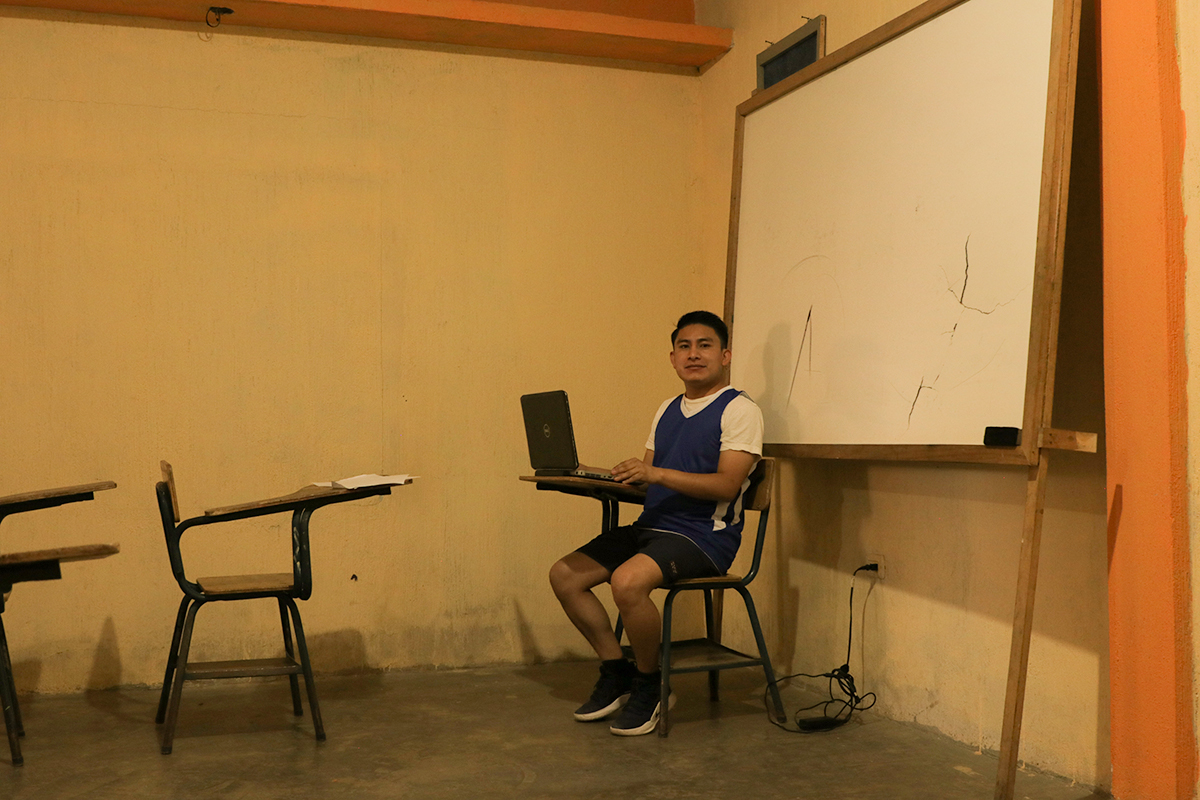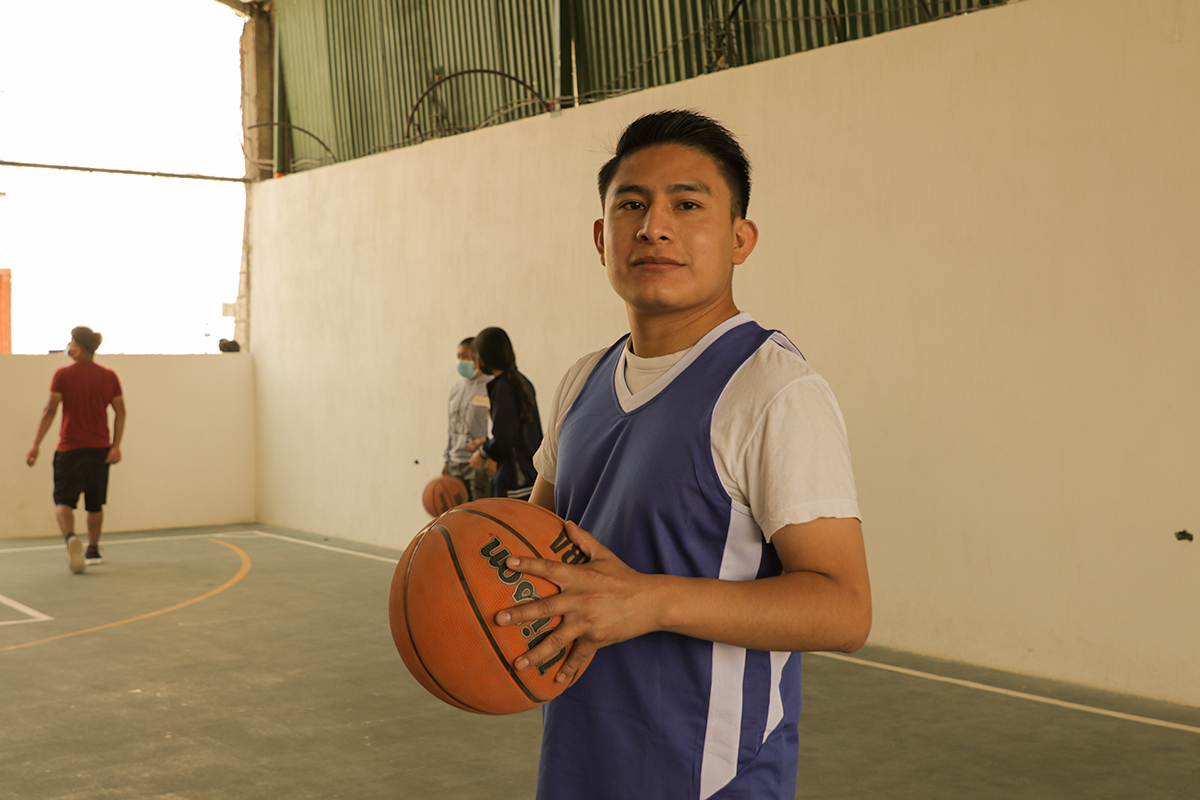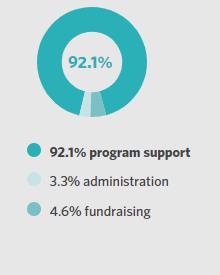When Jeysson was a sponsored child growing up in Guatemala, he got excited every year when his new school supplies arrived. He loved school and, even at a young age, knew the value of education for a child living in poverty.
Jeysson’s love of education never waned. Today he’s 26 and teaching high-school English while also managing a restaurant to help pay the bills. Even though he meets the minimum requirements to teach in Guatemala, he’s not satisfied. That’s why he’s also working toward a university degree in education and psychology.
“God willing, I can make it and next year I will graduate,” he said. “Frankly, I could say that my profession now is teacher.”
Called To Teach
A former sponsored child shares his passion for learning with a new generation of students
October 04, 2022 | Be Inspired
the need for dedicated teachers
Good teachers are much in need in Guatemala, which is known for the poor quality of its public education. Francisco Chavajay, program coordinator for Unbound in Guatemala, is concerned about the state of education in his country.
“If we review the content of the base curriculum that is used, it really worries me a lot that there are things that perhaps for young children should change — even the methodology," Chavajay said.
Education statistics from the World Bank suggest Chavajay is right to be concerned. According to the World Bank’s research, about half of all elementary school students in Guatemala don’t go on to high school. One reason is the pressure on older children to work to help support their families.
Like other Unbound staff around the world, Chavajay believes that education is the most important asset for sponsored children if they are to rise out of systemic poverty.
“Education is the tool that opens up opportunities for us,” he said. “We see sponsored children who have very limited [financial resources] and their access to education is very limited due to different reasons.”
For families that do commit to keeping their children in school, good teachers are vital.
“It is important for the person guiding [students] to have all the skills and abilities to do it,” Chavajay said. “[We need] teachers who have adequate formation to work with children and bring them to a more competitive level. I refer to dedicated teachers. A person with a vocation for teaching and adequate training will obviously reach better results.”
a passion to learn
Jeysson wants to be the kind of teacher Chavajay described, which is why he chose on his own initiative to go to college eight years after leaving the Unbound program. In the intervening years he worked at the restaurant he now manages, but even then he remained a learner.
“That restaurant works a lot with Americans,” he said. “For me, having that contact with Americans and learning English was like, ‘Wow here is the opportunity I was looking for!’ And that's where I was able to support myself, [working] so that I could continue until I [learned] my English.”
Jeysson’s desire to become proficient in English began when he became sponsored at the age of 7 by a family in Florida. The letters they sent included the original English as well as a Spanish translation provided by Unbound. Jeysson enjoyed comparing the two, slowly teaching himself a new language.
“I still keep some of [the letters] because they helped to form me and to make my decision to learn English. I used to say to myself, ‘Someday maybe they will send me a letter and I will ask them [Unbound] not to translate it for me, but I will have the opportunity to translate it.’”

Jeysson prepares a lesson in the classroom where he teaches English to high school students. As a child in Guatemala, he began learning English by reading the letters he received from his Unbound sponsors.
Instilling knowledge and values
Jeysson represents two outcomes that have been important to Unbound from the beginning of the organization. The first is providing for each child the kind of education that will allow them to earn a sustainable living after they leave the program. For that reason, one of the eligibility requirements for the sponsorship program is that a child or youth is enrolled in an academic institution or vocational or technical training.
The second outcome Jeysson exemplifies is a commitment to give back. Local Unbound programs work to form values within sponsored youth that encourage them to serve others and act as role models for those who come after them. The goal is to understand that with sponsorship comes a responsibility not only to themselves but to their communities.
“Now that I am teaching I see some youngsters having a hard time,” Jeysson said. “I [say to myself], ‘That young man could have been me,’ so I try to help them as [my sponsors] helped me.”

In addition to his teaching duties at the high school, Jeysson also coaches basketball. He tries to find volunteers in the local community to help him teach the fundamentals of the sport to young people.
changing lives
The day when Jeysson could translate an entire letter unassisted never arrived while he was sponsored, though he can do it now. Still, nine years after leaving the Unbound program, he has fond memories and he offers a message to sponsors.
“What I would sincerely tell them is not to give up,” he said. “Keep believing in the people to whom they give the opportunity. They can change a life just like my sponsors did with me.
“And I would say to the young people who are sponsored, ‘This is your moment to shine, to show many people that you can do it!’ Honestly, if I could do it, they can do it.”
I still keep some of [the letters] because they helped to form me and to make my decision to learn English. I used to say to myself, ‘Someday maybe they will send me a letter and I will ask them not to translate it for me, but I will have the opportunity to translate it.’
— Jeysson, Former sponsored child and current teacher













